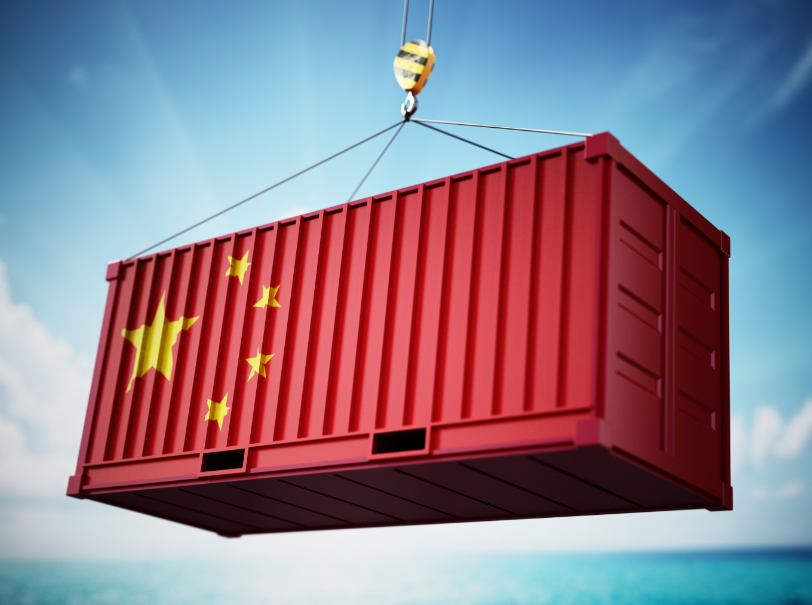
We may be a few weeks from Chinese New Year, but the start of 2024 has ushered in a busy start to China’s 2024 in trade. The Daily Update takes a look at the latest news, from ongoing EU trade spats to a new shipping debacle affecting the electric vehicle (EV) industry.
Cameron faces China questions
As Parliament returns this week, foreign secretary Lord Cameron will be facing questions today (9 January) from the Foreign Affairs Committee which could touch on his relationship with China.
With his successors presiding over an era of increasing China hawkishness, Politico predicts the former PM could answer questions on his business and personal connections in the region.
This follows a fresh hiccup in China-UK relations last week as the China Ministry of State Security (MMS) alleged that a foreign consultant has been spying on behalf of MI6 since 2015.
Nvidia’s chips are down
The US tech company is reportedly planning to release less powerful versions of its latest chips this year to comply with October’s export controls. However, it’s uncertain whether Chinese companies will go for the downgraded models.
Reuters reported that the H20, L20 and L2 chips will include up-to-date features but significantly less power.
A new gaming chip built to the same specifications elicited a tepid reaction from Chinese firms this month with ByteDance, Tencent, and super-apps Baidu and Alibaba suggesting to the Wall Street Journal that they will order less from Nvidia in future.
The report suggested firms could look to Chinese alternatives, such as mobile and telecoms giant Huawei, which has pivoted towards chip manufacture in recent years to overcome US restrictions.
The Biden administration introduced tighter controls on semiconductor exports due to fears they would be applied to Chinese military projects.
Green steel… eventually
The dial could be moving on China’s decarbonisation efforts, albeit very slowly. After 27 years of setbacks, “the world’s largest mining project”, which should facilitate mining greater quantities of high-grade iron ore to support less carbon-intensive steel production, is about to be greenlit.
The FT reports that the Guinean mine and infrastructure project, spearheaded by the British-Australian metals and mining company Rio Tinto, is likely to go ahead once Chinese partners get approval from Beijing. Given the scope of the project, its development is shared between Rio Tinto, the Guinean government and another seven companies, including five from China.
Bold Baatar, a Rio Tinto executive, emphasised the environmental impact of the country shifting towards environmentally-friendly production, asserting that “the only way the steel-making industry globally decarbonises is if China decarbonises”.
China is the world’s biggest polluter with 17% of its emissions derived from steel, according to a report from non-profit RMI. China’s decarbonisation efforts, including accelerating green steel production, will play a major role in the success of a global move towards net zero emissions.
After 27 years, there’ll still be some delay before production can gets underway; in addition to mine construction, 552km of railway will also be built, connecting extraction sites to Guinea’s Atlantic coast.
French brandy probe
China has added French brandy to the growing list of products caught up in EU trade disputes, launching an anti-dumping investigation on Friday (5 January), as per Reuters.
It’s believed this is a retaliatory move following the bloc’s anti-subsidy probe into China’s EV industry, as von der Leyen claimed the global market had been “flooded” with Chinese EVs in September.
The Chinese Commerce Ministry states the move follows a complaint from the China Alcoholic Beverages Association to protect China’s brandy producers.
The announcement has hit share prices at a number of French spirit companies including Remy Cointreau and Pernod Ricard. The 11% knocked off Remy Cointreau’s price represents a post-Covid low.
Max Zenglein, chief economist at Berlin think tank Mercator Institute for China Studies, described the investigation as a “targeted response”, designed to serve as a “warning towards the EU to tread carefully”.
Comparing this approach to its Australian wine spat, he said China is “following a well-established pattern on applying economic pressure while limiting the damage to its own economy”.
Landlocked EVs
The Chinese EV “flood” suggested by von der Leyen appears likely to be held back by the shipping crisis hitting China’s electric car manufacturers, as a lack of car-carrying vessels is stymieing overseas sales.
The FT reports that many shipping companies took the sharp pandemic-induced drop in demand as an opportunity to scrap older car-carriers in 2020, leaving Chinese companies exposed amid resurgent European orders.
Last year, Europe’s car imports rose by 40% – the largest increase of any region globally. Of the record 23.4m cars shipped globally in 2023, China is estimated to have sent 4.3m to Europe, a substantial increase on the 1m shipped in 2020.
While it’s made great inroads growing its European EV market share, China has yet to open factories on the continent, with any planned manufacturing plants years away from completion.
Matthias Schmidt, an analyst specialising in European EV sales, described the shortage as a “major headache” for exporters relying on ships, warning:
“Despite record orders for new vessels, these aren’t likely to come online for at least another two years as vehicle demand returns faster than anticipated.”
Rail freight alternative?
One potential solution to the shipping crisis would be rail freight, which has grown in popularity in recent years.
Mimicking global post-pandemic trends, International Railway Journal reported that China-Europe rail freight traffic rose over a quarter at the beginning of 2023.
To accommodate growth, the number of services travelling via the popular Xi'an-Duisburg route has increased from one train per day to two in both directions.
Chinese media reported that the first European freight journey of 2024 disembarked from Shanghai on Friday (5 January) carrying US$1.4m worth of goods.



